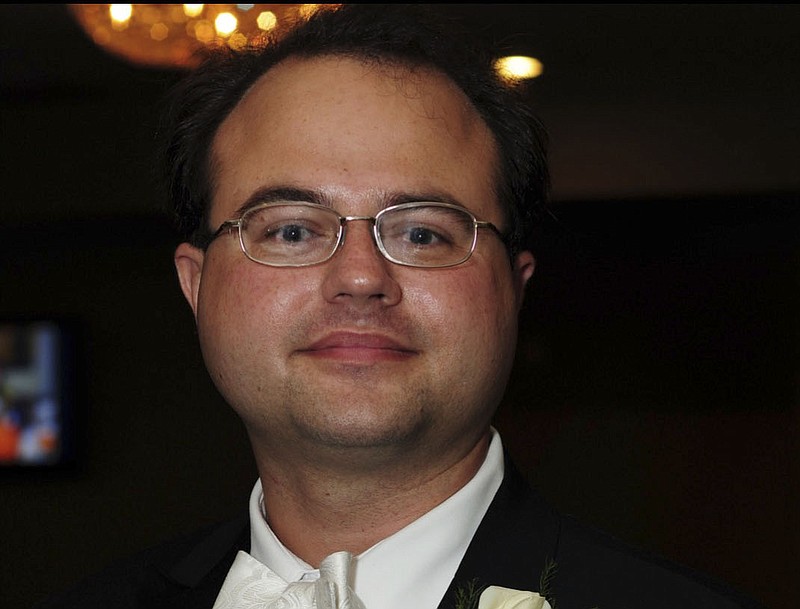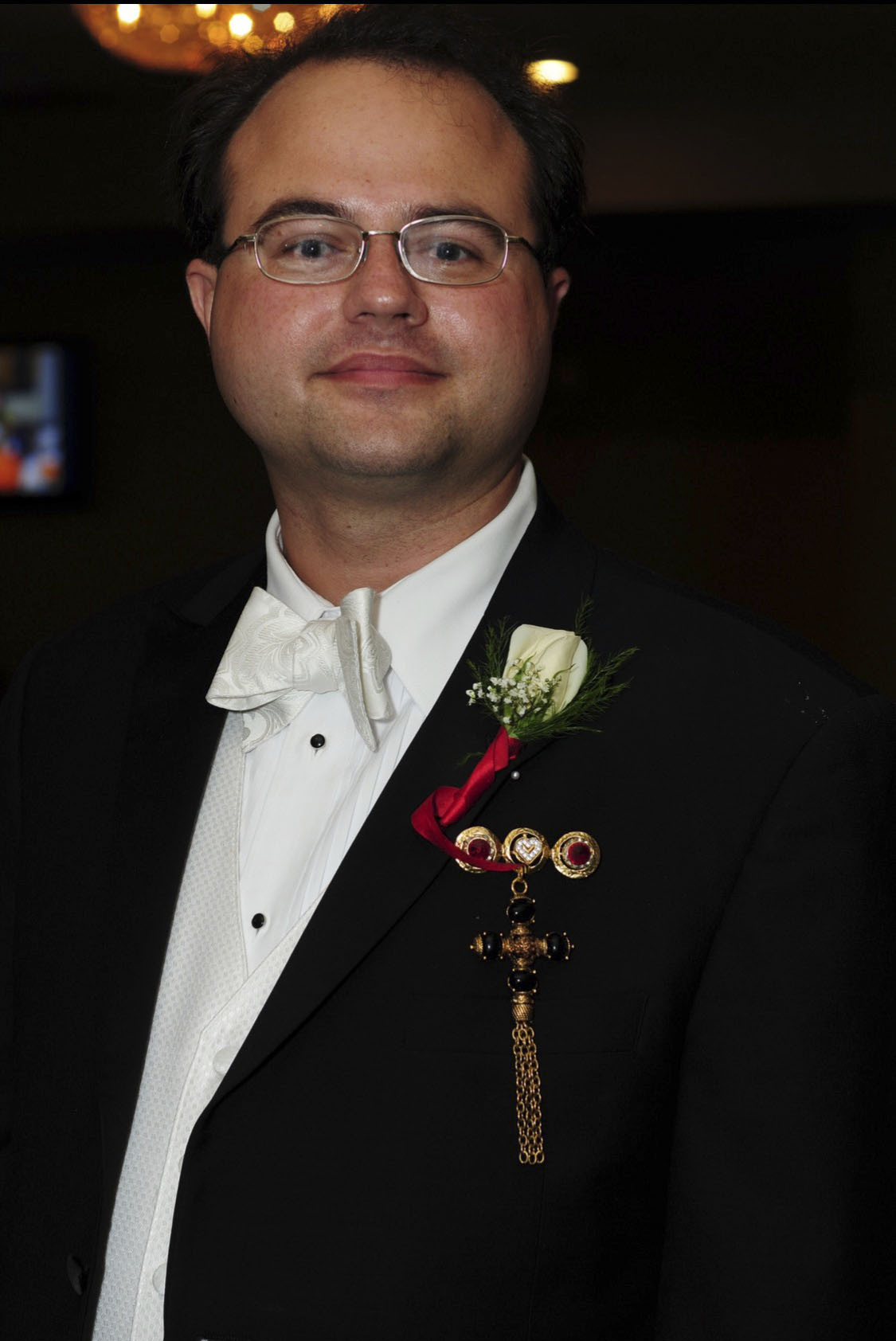Friday, Aug. 9, started like most any other weekday for 38-year-old Richard Wagner, of Red Bank.
By early afternoon, the work-at-home dad had already started planning dinner for himself, wife Marion and 1-year-old daughter Rosemarie.
Richard, an online instructor for Florida State College at Jacksonville, had set out frozen fish to thaw and cut up vegetables for a side dish. He and Marion had planned an after-work handoff of little Rosemarie at their house so Marion could get across town to a 5:30 p.m. appointment with a chiropractor.
Richard enjoyed cooking and taking care of his daughter, often taking her on long strolls through Red Bank. An older, first-time dad, he was deeply in love with his baby girl.
***
Marion arrived home around 5 p.m. with Rosemarie in hand. Oddly, Richard was not in the house, but his car keys, wallet, mobile phone and his ever-present tube of Chapstick were arrayed on the dining room table. Meanwhile, all of the doors to the house were locked and the trunk of Richard's car was wide open.
"The weirdest thing is that he didn't take Chapstick with him," said Marion, who teaches French and English at Signal Mountain Middle/High School. "Even if he had nothing else in his pocket he would have had Chapstick."
The open car trunk could be a clue to his whereabouts, she thought. Maybe he had taken his skateboard from the trunk and gone out for a ride.
***
Richard and Marion were married seven years ago in Jacksonville, Fla. The two teachers met through the online dating app OkCupid and hit it off immediately after a first date at a Greek restaurant.
"He was extremely intellectual," Marion said. "I had always wanted someone who thought about things, who looked like he was thinking about everything you said."
As time passed, the couple moved to Chattanooga, where Marion has extended family.
In recent months, Richard, who family members describe as a very intentional and measured person, started a folder on his home computer labeled "mid-life crisis." In the folder, among other things, were online links to skateboarding articles and videos. He had ridden skateboards growing up in Jacksonville.
Richard had also recently joined a new church and signed up online to be an organ donor in the event of his death. As part of his evolving midlife reawakening, Richard also ordered a custom black-and-green skateboard.
"I reminded him, 'You are almost 40,'" Marion said. "When you fall off, it's going to hurt."
Also on Richard's computer was a file labeled, sweetly: "Things I love about Marion."
***
As time passed on the late afternoon of Aug. 9, Marion became more panicked about her husband. It simply wasn't like him to miss a handoff involving his daughter, she said. And Marion's earlier calls and texts to Richard had gone unanswered.
Soon, Marion called some of her family members and recruited someone to watch Rosemarie while she and others searched the neighborhood. They looked under the house. They knocked on doors.
After a time, they called the police. Officers soon arrived at the Wagner house to gather information. In the course of the conversation, Marion offered that Richard liked to ride a skateboard. Officers told Marion that paramedics had picked up a traumatic brain injury patient on a nearby street - West Daytona Drive - a few hours earlier, and that they had recovered a skateboard at the scene.
Looking for a match, they called the station to identify the skateboard.
Word came back: It was black and green.
The events of the day started to come together. A neighbor said Richard was seen leaving his house about 2 p.m. Meanwhile, a witness to the accident saw Richard fall during his descent down a hill.
***
By the time Marion made it to Erlanger hospital, Richard had already had at least two surgeries. The bleeding in his brain was extensive; maybe too much to have been caused by his fall alone. A theory began to emerge that Richard had an underlying condition, possibly a brain aneurysm, that had created a mental fog that led him to make uncharacteristic decisions that day.
Marion is sure that he would not, under normal conditions, have decided to skateboard down an obviously dangerous hill.
"It [Daytona Drive] is basically a ski slope that ends on Dayton Boulevard," Marion said. "He would not have tried a hill like that."
In addition to a skull fracture, Richard had broken ribs and a broken clavicle. His condition was grave.
"From the beginning, they said this was one of the worst traumatic brain injuries from skateboarding they had seen," Marion said.
Soon, it became apparent that Richard's life was slipping away. Doctors were frank with Marion. They said the Richard she knew - the smart, loving husband - was gone. At best, he would only be able to exist on life support.
Marion was torn.
"Do everything, do anything you can," was her first impulse.
But in the back of her mind, she remembered Richard signing up to be an organ donor. His wishes under these circumstances were pretty clear.
***
Dawn Mazurek, senior hospital services coordinator for Tennessee Donor Services, said her team became aware of Richard's condition and eventually learned that he had registered for organ donation. There are strict rules that prohibit contact with a possible donor family until certain "clinical triggers" are met.
"We are in the wings," she explained.
This year alone, Erlanger has had 28 donors with 122 organs transplanted, Mazurek said. Nationwide, there are 113,000 people waiting for life-saving organs, and 20 people on the list die every day. The need for organ donation is ever-present.
***
Once tests proved to her that Richard met the clinical standards of "brain death," Marion made the decision to begin discussions with Tennessee Donor Services. She didn't want to wait and risk that any of his organs would become unusable.
Soon, the donor services team was lining up recipients and surgical teams to harvest Richard's organs, a process that can take 24-36 hours. Interestingly, he became the first deceased bone marrow donor in Tennessee Donor Services history, using a promising new technique that may one day dramatically improve the recoveries of organ recipients.
***
This year, Erlanger has embraced a touching new ceremony called the "honor walk." When organ donor patients are transported to the operating room, up to 100 clinical and administrative staff members line the halls in silent acknowledgment of a family's last goodbye.
Marion said she drew strength and inspiration from the honor walk as she said farewell to her husband at the elevator door.
"To do something so honorable changes the end of his story," Marion said through sniffles. "It's not just an end, it's really a beginning for others."
***
Richard's heart went to a 57-year-old man. His lungs went to a 62-year-old man. His liver went to a 58-year-old woman. Tissue donations may improve the lives of up to 50 other people.
***
The rules of organ donation allow for eventual contact between a recipient and the donor family if both sides agree. It is possible that Rosemarie will one day grow up and meet someone whose life was extended because of her father's gifts.
View other columns by Mark Kennedy
In the meantime, a family friend is having a T-shirt made for Rosemarie.
It will say: My dad was a superhero.
***
To register yourself for organ donation visit bethegifttoday.org.
Contact Mark Kennedy at mkennedy@timesfreepress.com or 423-757-6645.


